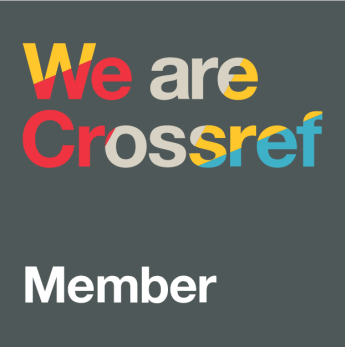The Implementation of Classical Guidance using the 'Find Me' Game to Enhance High School Students' Self-defense Skills Against Bullying through Problem-Based Learning
DOI:
https://doi.org/10.22460/quanta.v9i2.5992Keywords:
problem based learning, Classical Guidance, game media, defending bullying behaviorAbstract
This study aims to examine the effectiveness of implementing Problem-Based Learning (PBL) through the "Find Me" game media in enhancing self-defense behavior against bullying among 10th-grade students (Class X-6) at SMAN 2 Kediri. The research employed a guidance and counseling action research method with 40 student participants. The intervention was conducted in two cycles using a pretest-posttest design. Data were analyzed using the flow model. The results showed a significant improvement in self-defense behavior against bullying, increasing from 12.5% at the initial stage to 77.5% after the intervention. These findings indicate that applying PBL combined with the "Find Me" game media effectively develops students' ability to defend themselves in bullying situations. This research offers practical implications for school counselors and educators in designing innovative, student-centered interventions using cognitive and behavioral approaches to address bullying in the school environment.
References
Ashwin, J., Duijn, M. A. J. van, Marijtje, A. J., Kornelis, J., & Rambaran, J. A. (2025). The relation between defending, (dis)liking, and the classroom bullying norm: A cross-sectional social network approach in late childhood. Journal of Adolescence. https://doi.org/10.1177/01650254211029715
Atjo, A. M. Y., & Tetteng, B. (2024). Pengaruh bystander effect terhadap perilaku kekerasan bullying pada remaja di Universitas Negeri Makassar. PESHUM: Jurnal Pendidikan, Sosial, Humaniora, 3(3), 496–508. https://doi.org/10.56799/peshum.v3i3.3421
Halimah, A., Khumas, A., & Zainuddin, K. (2015). Persepsi pada bystander terhadap intensitas bullying pada siswa SMP. Jurnal Psikologi, 42(2), 129. https://doi.org/10.22146/jpsi.7168
Handayani, A. S. (2025). Layanan Bimbingan Klasikal Dengan Metode Problem Based Learning Terhadap Pemahaman Bahaya Cyber Grooming. Empati: Jurnal Bimbingan dan Konseling, 12(1), 1-14. https://doi.org/10.26877/empati.v12i1.15775
Hmelo-Silver, C. E. (2004). Problem-based learning: What and how do students learn? Educational Psychology Review, 16(3), 235–266. https://psycnet.apa.org/doi/10.1023/B:EDPR.0000034022.16470.f3
Istiqhfarin, A. A., Christiana, E., & Nursilowati, L. (2024). Implementasi layanan bimbingan klasikal model problem based learning untuk mencegah kenakalan remaja. Proceedings of the Seminar Nasional Bimbingan dan Konseling, 150–159. https://doi.org/10.38073/almusyrif.v7i2.1794
Nande, S. S. S., & Noorrizki, R. D. (2022). Pengaruh kehadiran orang lain terhadap waktu yang diperlukan seseorang untuk menolong dalam perspektif prososial. Flourishing Journal, 2(5), 392–397. https://doi.org/10.17977/um070v2i52022p392-397
Nst, M. N., Wilodati, & Abdullah, M. N. A. (2023). Pengaruh perilaku active defending pada bystander terhadap pencegahan bullying (Studi kasus siswa SMA di Kota Medan). Jurnal Bimbingan dan Konseling, 7(2), 211–221. https://jurnal.poltekba.ac.id/index.php/jsh/article/view/1789
Nugroho, M. Y. (2023). Strategi intervensi konseling melalui layanan bimbingan klasikal untuk menumbuhkan pemahaman akan bahaya bullying terhadap kesehatan mental siswa SDN 3 Gunungwetan. Proceedings of Annual Guidance and Counseling Academic Forum, 46–54. https://proceeding.unnes.ac.id/agcaf/article/view/2380
Nugroho, S., Handoyo, S., & Hendriani, W. (2020). Identifikasi faktor penyebab perilaku bullying di pesantren: Sebuah studi kasus. Al-Hikmah: Jurnal Agama dan Ilmu Pengetahuan, 17(2), 1–14. https://doi.org/10.25299/al-hikmah:jaip.2020.vol17(2).5212
Polanin, J. R., Espelage, D. L., & Pigott, T. D. (2012). A meta-analysis of school-based bullying prevention programs’ effects on bystander intervention behavior. School Psychology Review, 41(1), 47–65. https://doi.org/10.1080/02796015.2012.12087375
Rachma, A. W. (2022). Upaya pencegahan bullying di lingkup sekolah. Jurnal Hukum dan Pembangunan Ekonomi, 10(2), 241. https://doi.org/10.20961/hpe.v10i2.62837
Salmivalli, C., Voeten, M., & Poskiparta, E. (2011). Bystanders matter: Associations between reinforcing, defending, and the frequency of bullying behavior in classrooms. Journal of Clinical Child & Adolescent Psychology, 40(5), 668–676. http://dx.doi.org/10.1080/15374416.2011.597090
Setyaputri, N. Y., Krisphianti, Y. D., & Puspitarini, I. Y. D. (2018). Permainan roda pelangi sebagai media untuk meningkatkan karakter fairness siswa sekolah dasar. Jurnal Kajian Bimbingan dan Konseling, 3(3), 108–118. https://doi.org/10.17977/um001v3i32018p108
Soleman, F. (2021). Meminimalisir bahaya bullying melalui bimbingan klasikal pada siswa VIII SMP Negeri 7 Telaga Biru. Aksara: Jurnal Ilmu Pendidikan Nonformal, 7(3), 1407–1416. https://doi.org/10.37905/aksara.7.3.1407-1416.2021
Syafiuddin. (2021). Penelitian tindakan kelas (Teori dan aplikasinya pada pembelajaran Bahasa Arab). Borneo: Journal of Islamic Studies, 1(2), 1–17. https://doi.org/10.37567/borneo.v1i2.440
Utomo, P., Asvio, N., & Prayogi, F. (2024). Metode Penelitian Tindakan Kelas (PTK): Panduan Praktis untuk Guru dan Mahasiswa di Institusi Pendidikan. Pubmedia Jurnal Penelitian Tindakan Kelas Indonesia, 1(4), 19.
https://doi.org/10.47134/ptk.v1i4.821
Wijayanti, A., Widodo, J., & Nugroho, S. E. (2019). Pengaruh model problem based learning terhadap minat belajar siswa. Journal of Educational Research and Evaluation, 8(2), 86–91.
Zahra, A. A. (2017). Upaya mengurangi perundungan melalui penguatan bystanders di SMP B Yogyakarta. Urecol Conference Proceedings, 17–22. https://journal.unimma.ac.id/index.php/urecol/article/view/1608
Zakiyah, E. Z., Humaedi, S., & Santoso, M. B. (2017). Faktor yang mempengaruhi remaja dalam melakukan bullying. Prosiding Penelitian dan Pengabdian kepada Masyarakat, 4(2), 324–330. https://doi.org/10.24198/jppm.v4i2.14352
Downloads
Published
How to Cite
Issue
Section
License
Copyright (c) 2025 Prisca Aulia Agustin, Nora Yuniar Setyaputri

This work is licensed under a Creative Commons Attribution-ShareAlike 4.0 International License.
Quanta: Jurnal Kajian Bimbingan dan Konseling dalam Pendidikan is licensed under a Creative Commons Attribution-ShareAlike 4.0 International License. Authors who publish with the Quanta Journal agree to the following terms:
- Authors retain copyright and grant the journal right of first publication with the work simultaneously licensed under a Creative Commons Attribution License that allows others to share the work with an acknowledgment of the work's authorship and initial publication in this journal.
- Authors are able to enter into separate, additional contractual arrangements for the non-exclusive distribution of the journal's published version of the work (e.g., post it to an institutional repository or publish it in a book), with an acknowledgment of its initial publication in this journal.
- Authors are permitted and encouraged to post their work online (e.g., in institutional repositories or on their website) prior to and during the submission process, as it can lead to productive exchanges, as well as earlier and greater citation of published work.
























